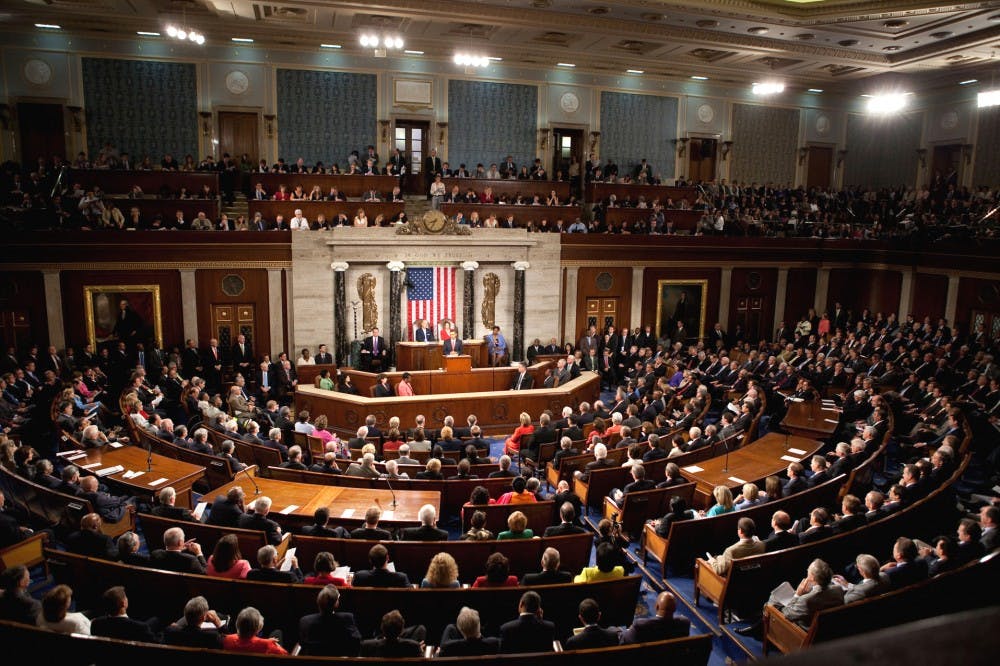By Sarah Camino, Guest Columnist
No one stands to lose more from the Justice Against Sponsors of Terrorism Act (JASTA) than the United States. Our dignity and our dignitaries, our financial interests and our integrity, our foreign assets and our foreign relations are all at risk.
Senator Chuck Schumer D-N.Y., one of the bill's sponsors, illuminates the unfortunate divide between Obama's presidency and his reactionary congress.
"The White House and the executive branch [are] far more interested in diplomatic considerations," Schumer says. "[Congress is] more interested in the families and in justice."
Need these two forums preclude each other? They certainly cannot if the government is to function as intended. We must understand our citizenship as contingent both on domestic and foreign policy, bipartisanship and conviction, justice and judiciousness.
Repercussions are already surfacing, both intended and unintended. CNN reports Stephanie DeSimone filed court documents Friday accusing the Kingdom of knowledge and material support for the September 11th attacks. This, despite the fact that the 9/11 Commission Report exculpates the Saudi government as an institution. It is unclear how the legal proceedings under JASTA would explicitly play out, but it is likely the same institutions and techniques that have absolved the Kingdom of wrongdoing in the past that will now fail to produce a substantive account that proves their involvement. Complicating the legal process are countries now on sovereignty tenterhooks and methods that will most likely fail to provide closure or meaningful compensation to families.
Furthermore, the Arab Project in Iraq, a lobby group, has recently threatened to file lawsuits seeking compensation for violations by U.S. forces following the 2003 invasion of Iraq. According to Al Arabiya Network, they are urging an investigation into the deaths of civilian targets, property violations, torture and mistreatment of individuals. Al Jazeera Media Network also reports that Gulf Cooperation Council states are likely to back Saudi Arabia and that estimates of official Saudi assets in the United States are between 500 billion and 1 trillion USD. If withdrawn, these holdings could seriously impugn the United States' financial security.
On Sept. 23, Obama warned of the specific losses Americans may face under JASTA. In a memo, he said that "the United States has a larger international presence, by far, than any other country ... [JASTA] threatens to undermine these longstanding principles that protect the United States, our forces and our personnel."
Under this "dangerous precedent," United States soldiers, who give up their freedoms and lives to serve the United States, including 9/11 victims, could face incarceration and indictment for violations of the laws of the countries they occupy. The White House also warned that waiving sovereign immunity "only" in the case of Saudi Arabia would by no means protect the United States from retaliation in other countries. This specificity, Senate Majority Leader Mitch McConnell R-KY, called a "failure to communicate," chastising Obama for not discussing the ramifications of the bill earlier. Apparently efforts on behalf of the Obama administration to block the bill as early as April, according to New York Times coverage, were also insufficient.
Less than 24 hours after the Sept. 28 congressional override of President Obama's veto, both Republicans and Democrats expressed a desire to narrow the effects of the bill. However, nothing less than a complete repeal of JASTA will suffice. Narrowing the bill's implications to refer only and explicitly to the September 11th attacks, as rueful lawmakers have suggested, only places a limit on the bill's implications from within a narrow context understood only by the United States. No such justification for overriding sovereign immunity to target particular cases (excluding genocide) exists in other countries. We assume that international law does and ought to take the United States' experiences and interests as a default, when in fact no such default exists in the nebulous space that transcends borders.
It is disheartening that bipartisan support can only occur in the most superficial, politically expedient cases and that we find something so rotten in the state of collaboration. JASTA valorizes conspiracy, redefines the right to justice as exclusively American, betrays armed servicemen, jeopardizes foreign relations, threatens national interests, compromises U.S. assets in foreign countries, menaces the U.S. economy and embarrasses our political system in an already dysfunctional election season.
To put foreign policy in the hands of litigants is inadvisable; to place it in the hands of Congress and ask them to handle it with equanimity and common sense is also apparently too much to ask.
The JASTA debacle reveals the broken system we will expect to check the power of either a President Clinton or a President Trump. Indeed, we must view our future president as more significant than our founders intended her to be, unless we would like his tyranny to fall on the same oblivious body of representatives.
caminosj@miamioh.edu

